The audition room can be a stressful place, and preparing for your shot in front of casting directors can be equally as daunting. Pick up your metaphorical sword and slay your next audition for a dramatic role by choosing a monologue that fits you.
Have no fear! Here are 17 dramatic monologues for women:
1. “Set down, set down your honourable load…” – Lady Anne Neville from ‘Richard III’

When it comes to drama, Shakespeare’s ‘Richard III’ doesn’t fall short – as shown by this monologue spoken by the complex and emotionally-driven Lady Anne…
Monologue Length: Up to 2:00
“Set down, set down your honourable load,
If honour may be shrouded in a hearse,
Whilst I awhile obsequiously lament
The untimely fall of virtuous Lancaster.
Poor key-cold figure of a holy king!
Pale ashes of the house of Lancaster!
Thou bloodless remnant of that royal blood!
Be it lawful that I invocate thy ghost,
To hear the lamentations of Poor Anne,
Wife to thy Edward, to thy slaughter’d son,
Stabb’d by the selfsame hand that made these wounds!”
[Full Monologue HERE]
2. “And for that matter I have no secrets.” – Julie from ‘Miss Julie’

The woeful tale of Miss Julie dates back to 1888, written by playwright August Strindberg (it has since then been adapted into modern works such as the National Theatre’s production of ‘Julie’).
Monologue Length: 1:25 – 2:00
“And for that matter I have no secrets. You see, my mother was not of noble birth. She was brought up with ideas of equality, woman’s freedom and all that. She had very decided opinions against matrimony, and when my father courted her she declared that she would never be his wife—but she did so for all that. I came into the world against my mother’s wishes, I discovered, and was brought up like a child of nature by my mother, and taught everything that a boy must know as well; I was to be an example of a woman being as good as a man—I was made to go about in boy’s clothes and take care of the horses and harness and saddle and hunt, and all such things; in fact, all over the estate women servants were taught to do men’s work, with the result that the property came near being ruined—and so we became the laughing stock of the countryside. At last my father must have awakened from his bewitched condition, for he revolted, and ran things according to his ideas. My mother became ill—what it was I don’t know, but she often had cramps and acted queerly—sometimes hiding in the attic or the orchard, and would even be gone all night at times. Then came the big fire which of course you have heard about. The house, the stables—everything was burned, under circumstances that pointed strongly to an incendiary, for the misfortune happened the day after the quarterly insurance was due and the premiums sent in by father were strangely delayed by his messenger so that they arrived too late.”
3. “My sister, Veronica, and I did this double act…” – Velma Kelly from ‘Chicago’
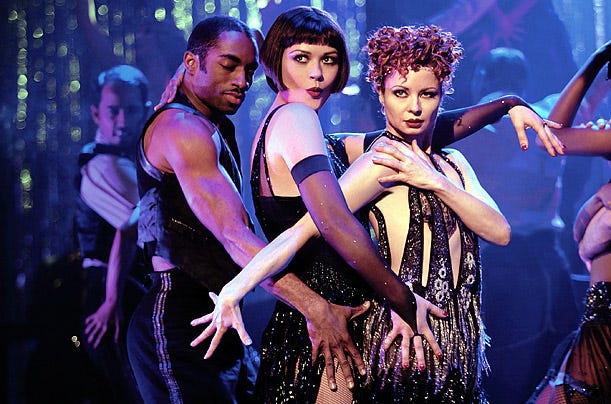
…5, 6, 7, 8! Take on the role of Cook County Jail diva, Velma Kelly, who recounts her murderous mishap involving her late husband and sister.
Monologue Length: 0:40 – 1:00
“My sister, Veronica, and I did this double act and my husband, Charlie, traveled around with us. Now for the last number in our act, we did these 20 acrobatic tricks in a row, one, two, three, four, five…splits, spread eagles, flip flops, back flips, one right after the other. Well, this one night we were in Cicero, the three of us, sittin’ up in a hotel room, boozin’ and havin’ a few laughs and we ran out of ice, so I went out to get some. I come back, open the door and there’s Veronica and Charlie doing Number Seventeen–the spread eagle. Well, I was in such a state of shock, I completely blacked out. I can’t remember a thing. It wasn’t until later, when I was washing the blood off my hands I even knew they were dead.”
4. “I dream of a place where we could be together at last…” – Audrey from ‘Little Shop Of Horrors’

While ‘Little Shop Of Horrors’ offers audiences plenty of laughs (and horrors), it also carries a few heavy themes. Cue Audrey’s heartfelt monologue, denoting her hopes and dreams to live somewhere that’s green beyond Skid Row.
Monologue Length: 0:30 – 0:50
“I dream of a place where we could be together at last… It’s just a daydream of mine. A little development that I dream of. Just off the interstate in a little suburb, far, far from urban Skid Row. The sweetest, greenest place – where everybody has the same little lawn out front and the same little flagstone patio out back. And all the houses are so neat and pretty… ‘Cause they all look just alike. Oh, I dream about it all the time. Just me. And the toaster. And a sweet little guy – like Seymour…”
5. “I come here from North Carolina at seventeen…” – Esther from ‘Intimate Apparel’

Lynn Nottage’s play is set in 1905 and chronicles the journey of a young woman following her dreams in New York City.
Monologue Length: 0:50 – 1:00
“I come here from North Carolina at seventeen after my mother died of influenza. God bless her loving spirit. My father died two years later, he was a slave you see and didn’t take to life as a freeman. He’d lost his tongue during a nasty fight over a chicken when I was a baby, so I never heard him speak, no complaints, no praise, no gentle words, no goodbye. He was… silent. Broken really. I come to this city by myself, worked my way North little by little, picking berries in every state until I get here. An old woman in the rooming house teach me to sew intimate apparel, saying folks’ll pay you good money for your discretion. It was just about the best gift anybody give me. It was as though God kissed my hands when I first pulled the fabric through the sewing machine and held up a finished garment. I discovered all I need in these fingers. I wanted you to know that about me.”
6. “Long gone away somewhere I don’t know…” – Mrs. Robinson from ‘The Graduate’

And here’s to you, Mrs. Robinson… The story of ‘The Graduate’ has graced both screen and stage, an acclaimed script accompanying both.
Monologue Length: 0:30 – 0:45
“Long gone away somewhere I don’t know. I met your father, he used t’sing t’me. We’d be go someplace in the car and he would sing. He could sing. But not the high notes. Some songs he couldn’t get those high notes. So at school I had this teacher. Who taught the choir and the piano and the oboe, but the choir, so I know if you singing high up there you must think you breathing in, not out, as you go up… You understand? In, not out, and high as you like. So one night. In the car. I taught him. And right away, he could. And all the songs he used to sing… to want to sing… suddenly… he could sing ‘em. And you know what? He never sang to me again.”
7. “One woe doth tread upon another’s heel…” – Gertrude from ‘Hamlet’

If there’s one playwright who knows drama, it’s William Shakespeare. In one of his most-read works, the character of Queen Gertrude laments the death of Ophelia as she informs Ophelia’s brother, Laertes.
Monologue Length: 0:50 – 1:10
“One woe doth tread upon another’s heel,
So fast they follow. Your sister’s drown’d, Laertes.
Drown’d! O, where?
There is a willow grows aslant a brook,
That shows his hoar leaves in the glassy stream.
There with fantastic garlands did she come
Of crowflowers, nettles, daisies, and long purples,
That liberal shepherds give a grosser name,
But our cold maids do dead men’s fingers call them.
There on the pendant boughs her coronet weeds
Clamb’ring to hang, an envious sliver broke,
When down her weedy trophies and herself
Fell in the weeping brook. Her clothes spread wide
And, mermaid-like, awhile they bore her up;
Which time she chaunted snatches of old tunes,
As one incapable of her own distress,
Or like a creature native and indued
Unto that element; but long it could not be
Till that her garments, heavy with their drink,
Pull’d the poor wretch from her melodious lay
To muddy death.”
8. “O good Iago, What shall I do to win my lord again?” – Desdemona from ‘Othello’
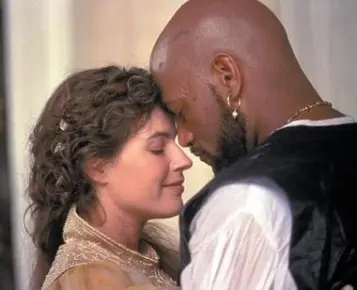
In another monologue penned by The Bard, Desdemona beckons the help of her friend, Iago, to win back her husband’s love and affections.
Monologue Length: 0:40 – 1:00
“O good Iago, What shall I do to win my lord again? Good friend, go to him; for, by this light of heaven, I know not how I lost him. Here I kneel: If e’er my will did trespass ‘gainst his love, Either in discourse of thought or actual deed, Or that mine eyes, mine ears, or any sense, Delighted them in any other form; Or that I do not yet, and ever did. And ever will—though he do shake me off To beggarly divorcement—love him dearly, Comfort forswear me! Unkindness may do much; And his unkindness may defeat my life, But never taint my love. I cannot say ‘whore:’ It does abhor me now I speak the word; To do the act that might the addition earn Not the world’s mass of vanity could make me.”
9. “Thou knowest the mask of night…” – Juliet from ‘Romeo and Juliet’
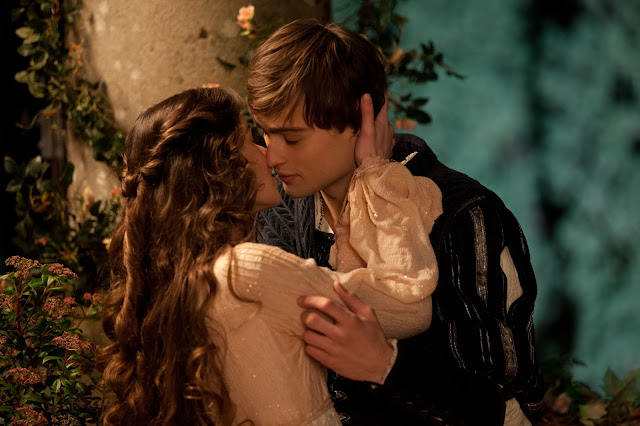
Perhaps the most iconic tragedy to date, ‘Romeo And Juliet’ bare countless woeful speeches. You can get your fill of drama with Juliet’s “Thou knowest the mask of night” monologue.
Monologue Length: 1:00 – 1:15
“Thou knowest the mask of night is on my face;
Else would a maiden blush bepaint my cheek
For that which thou hast heard me speak to-night.
Fain would I dwell on form — fain, fain deny
What I have spoke; but farewell compliment!
Dost thou love me? I know thou wilt say ‘Ay’;
And I will take thy word. Yet, if thou swear’st,
Thou mayst prove false. At lovers’ perjuries,
They say Jove laughs. O gentle Romeo,
If thou dost love, pronounce it faithfully.
Or if thou thinkest I am too quickly won,
I’ll frown, and be perverse, and say thee nay,
So thou wilt woo; but else, not for the world.
In truth, fair Montague, I am too fond,
And therefore thou mayst think my havior light;
But trust me, gentleman, I’ll prove more true
Than those that have more cunning to be strange.
I should have been more strange, I must confess,
But that thou overheard’st, ere I was ware,
My true-love passion. Therefore pardon me,
And not impute this yielding to light love,
Which the dark night hath so discovered.”
10. “Cremuel– tell the Ambassador of the bill you are bringing into Parliament.” – Anne Boleyn from ‘Wolf Hall’
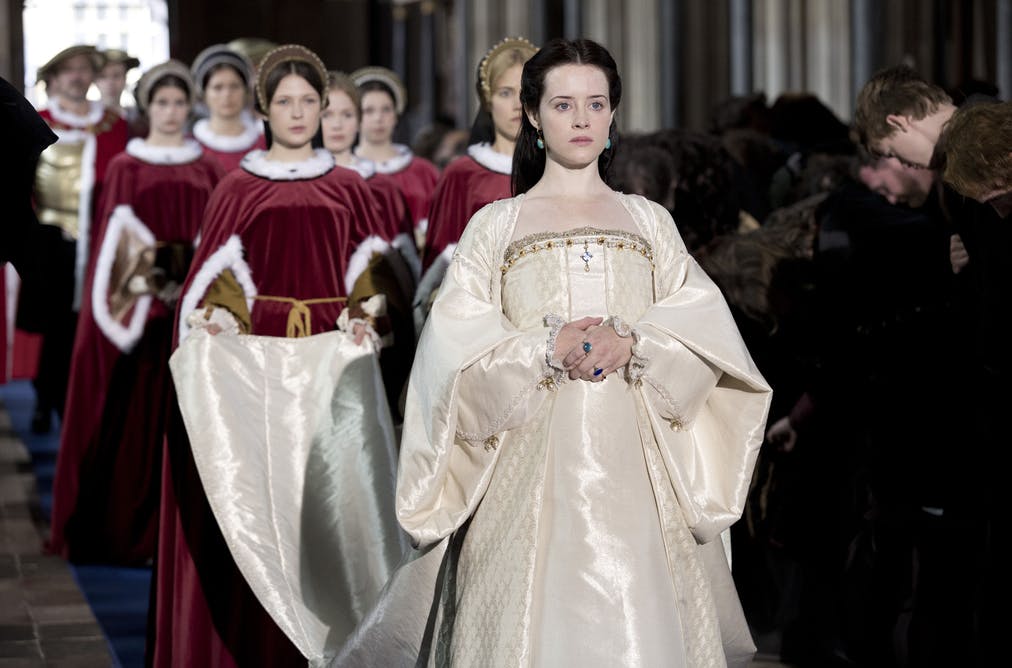
‘Wolf Hall’ sheds light on the Tudor era of King Henry VIII and Anne Boleyn through the eyes of Thomas Cromwell. Channel your anguished inner queen with these words by Anne…
Monologue Length: 1:05 – 1:20
“Cremuel– tell the Ambassador of the bill you are bringing into Parliament. I wish it made clear to your master, and to all Europe, that a bill is going through Parliament which settles the succession of England on my children. Mine. Not Katharine’s. When a son is born to me he shall succeed to the throne of England. And my daughters are and shall be royal princesses.
Cremuel’s bill declares that Katharine’s child Mary is a bastard– she was never your wife, Henry, so the child you go on her is a bastard–is that not so, Cremuel? It’s not enough to put Mary out of the line of succession! It’s no good to me. I want her made a bastard. You bill will make her a bastard.
You are worried about her cousin, the Emperor? You don’t want to provoke him? No? Then I shall provoke him for you. I shall tell you, Ambassador, what will happen to Mary. The Princess Elizabeth is to have her own household and the bastard Mary will join it as her servant. She will go on her knees to my daughter. And if she won’t bend her knee then she shall be beaten and buffeted until she does bend. She will call my daughter Princess, or I shall make her suffer.”
11. “I went to the typing instructor and introduced myself as your mother.” – Amanda Wingfield from ‘The Glass Menagerie’
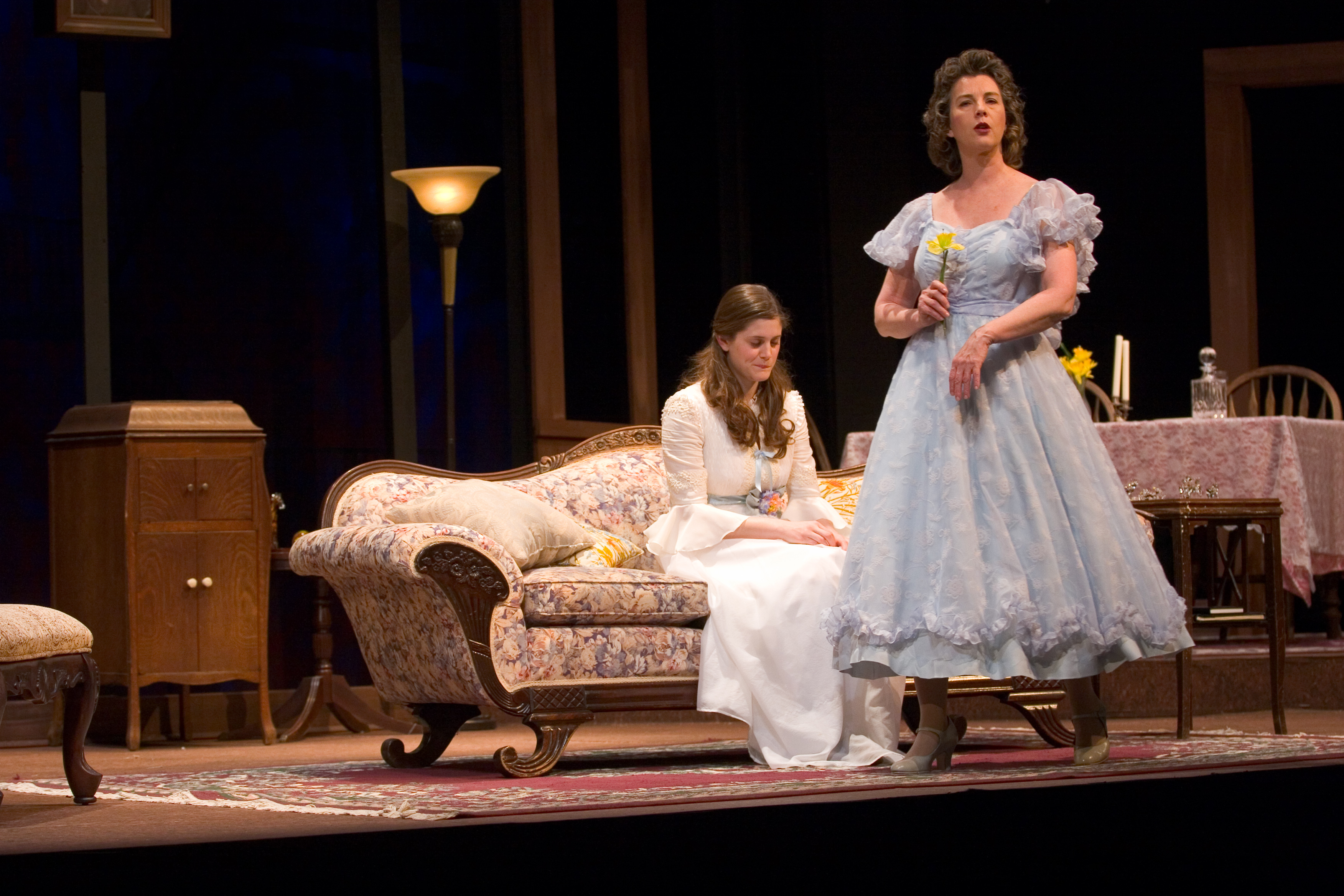
A devoted yet overprotective mother involves herself with the business of her children in this monologue from the acclaimed play, ‘The Glass Menagerie’.
Monologue Length: 1:25 – 1:40
“I went to the typing instructor and introduced myself as your mother. She didn’t know who you were. Wingfield, she said. We don’t have any such student enrolled at the school! I assured her she did, that you had been going to classes since early in January. ‘I wonder,’ she said, ‘if you could be talking about that terribly shy little girl who dropped out of school after only a few days’ attendance?’ ‘No,’ I said, ‘Laura, my daughter, has been going to school every day for the past six weeks!’ ‘Excuse me,’ she said. She took the attendance book out and there was your name, unmistakably printed, and all the dates you were absent until they decided that you had dropped out of school. I still said, ‘No, there must have been some mistake I There must have been some mix‐up in the records!’ And she said, ‘No – I remember her perfectly now. Her hands shook so that she couldn’t hit the right keys! The first time we gave a speed‐test, she broke down completely ‐ was sick at the stomach and almost had to be carried into the wash‐room! After that morning she never showed up any more. We phoned the house but never got any answer’ – while I was working at Famous and Barr, I suppose, demonstrating those – Oh! I felt so weak I could barely keep on my feet! I had to sit down while they got me a glass of water! Fifty dollars’ tuition, all of our plans – my hopes and ambition for you – just gone up the spout, just gone up the spout like that.”
12. “When I was very small…” – Beneatha Younger from ‘A Raisin In the Sun’
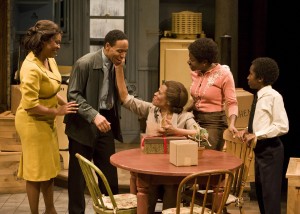
Audiences are brought into the living room of one Chicago family in ‘A Raisin In The Sun’. Beneatha, one of the play’s main characters, discusses her past in the below snippet.
Monologue Length: 1:15 – 1:30
“When I was very small…we used to take our sleds out in the wintertime and the only hills we had were the ice covered stone steps of some houses down the street. And we used to fill them in with snow and make them smooth and slide down them all day…and it was very dangerous you know…far too steep…and sure enough one day a kid named Rufus came down too fast and hit the sidewalk…and we saw his face just split open right there in front of us…and I remember standing there looking at his bloody open face thinking that was the end of Rufus. But the ambulance came and they took him to the hospital and they fixed the broken bones and they sewed it all up…and the next time I saw Rufus he just had a little line down the middle of his face…I never got over that…
That that was what one person could do for another, fix him up–sew up the problem, make him all right again. That was the most marvelous thing in the world…I wanted to do that. I always thought it was the one concrete thing in the world that human being could do. Fix up the sick, you know–and make them whole again. This was truly being God…”
13. “Yes–someday, perhaps, after many years…” – Nora Helmer from ‘A Doll’s House’

This play’s leading lady is a model housewife and mother plagued by an inner discontentment for her “perfect” world.
Monologue Length: 1:00 – 1:15
“Yes–someday, perhaps, after many years, when I am no longer as nice-looking as I am now. Don’t laugh at me! I mean, of course, when Torvald is no longer as devoted to me as he is now; when my dancing and dressing-up and reciting have palled on him; then it may be a good thing to have something in reserve–[Breaking off.] What nonsense! That time will never come. Now, what do you think of my great secret, Christine? Do you still think I am of no use? I can tell you, too, that this affair has caused me a lot of worry. It has been by no means easy for me to meet my engagements punctually. I may tell you that there is something that is called, in business, quarterly interest, and another thing called payment in installments, and it is always so dreadfully difficult to manage them. I have had to save a little here and there, where I could, you understand. I have not been able to put aside much from my housekeeping money, for Torvald must have a good table. I couldn’t let my children be shabbily dressed; I have felt obliged to use up all he gave me for them, the sweet little darlings!”
14. “He was a boy, just a boy…” – Blanche DuBois from ‘A Streetcar Named Desire’

In one of theatre’s most known works written by Tennessee Williams, Blanche DuBois shares her discovery of love and its tumultuous and tragic downfall.
Monologue Length: 1:50 – 2:10
“He was a boy, just a boy, when I was a very young girl. When I was sixteen, I made the discovery–love. All at once and much, much too completely. It was like you suddenly turned a blinding light on something that had always been half in shadow, that’s how it struck the world for me. But I was unlucky. Deluded. There was something different about the boy, a nervousness, a softness and tenderness which wasn’t like a man’s, although he wasn’t the least bit effeminate looking–still–that thing was there…. He came to me for help. I didn’t know that. I didn’t find out anything till after our marriage when we’d run away and come back and all I knew was I’d failed him in some mysterious way and wasn’t able to give the help he needed but couldn’t speak of! He was in the quicksands and clutching at me–but I wasn’t holding him out, I was slipping in with him! I didn’t know that. I didn’t know anything except I loved him unendurably but without being able to help him or help myself. Then I found out. In the worst of all possible ways. By coming suddenly into a room that I thought was empty–which wasn’t empty, but had two people in it… the boy I had married and an older man who had been his friend for years….
[… …]
I ran out–all did!–all ran and gathered about the terrible thing at the edge of the lake! I couldn’t get near for the crowding. Then somebody caught my arm. “Don’t go any closer! Come back! You don’t want to see!” See? See what! Then I heard voices say–Allan! Allan! The Grey boy! He’d stuck the revolver into his mouth, and fired–so that the back of his head had been–blown away!
It was because–on the dance-floor–unable to stop myself–I’d suddenly said–“I saw! I know! You disgust me…” And then the searchlight which had been turned on the world was turned off again and never for one moment since has there been any light that’s stronger than this–kitchen– candle…”
15. “Fie, fie, unknit that threat’ning unkind brow…” Katherine from ‘The Taming Of The Shrew’

Shakespeare’s comedy (later adapted into musical form via ‘Kiss Me, Kate’) also brings drama to the table. If it’s an eloquent monologue comprised of old English you’re looking for, put your twist on Katherine’s “Fie, fie, unknit that threat’ning unkind brow…”
Monologue Length: Up to 2:15
“Fie, fie, unknit that threat’ning unkind brow
And dart not scornful glances from those eyes
To wound thy lord, thy king, thy governor.
It blots thy beauty as frosts do bite the meads,
Confounds thy fame as whirlwinds shake fair buds,
And in no sense is meet or amiable.
A woman moved is like a fountain troubled,
Muddy, ill-seeming, thick, bereft of beauty,
And while it is so, none so dry or thirsty
Will deign to sip or touch one drop of it.
Thy husband is thy lord, thy life, thy keeper,
Thy head, thy sovereign; one that cares for thee
And for thy maintenance; commits his body
To painful labor both by sea and land,
To watch the night in storms, the day in cold,
Whilst thou li’st warm at home, secure and safe;
And craves no other tribute at thy hands
But love, fair looks, and true obedience–
Too little payment for so great a debt.”
[Full Monologue HERE]
16. “A reserved lover, it is said, always makes a suspicious husband.” – Kate Hardcastle from ‘She Stoops To Conquer’

Conquer this traditional dramatic monologue at your next audition. It’s spoken by Kate Hardcastle (also known as “Miss Hardcastle), the story’s heroine who yearns for true love.
Monologue Length: 1:45 – 2:00
“A reserved lover, it is said, always makes a suspicious husband. […] He must have more striking features to catch me, I promise you. However, if he be so young, so handsome, and so everything as you mention, I believe he’ll do still. I think I’ll have him. […] Well, if he refuses, instead of breaking my heart at his indifference, I’ll only break my glass for its flattery, set my cap to some newer fashion, and look out for some less difficult admirer. […] Lud, this news of papa’s puts me all in a flutter. Young, handsome; these he put last; but I put them foremost. Sensible, good-natured; I like all that. But then reserved, and sheepish, that’s much against him. Yet can’t he be cured of his timidity, by being taught to be proud of his wife? Yes, and can’t I–But I vow I’m disposing of the husband, before I have secured the lover.”
17. “Oh, my sins….” – Lyuba Ranevsky from ‘The Cherry Orchard’
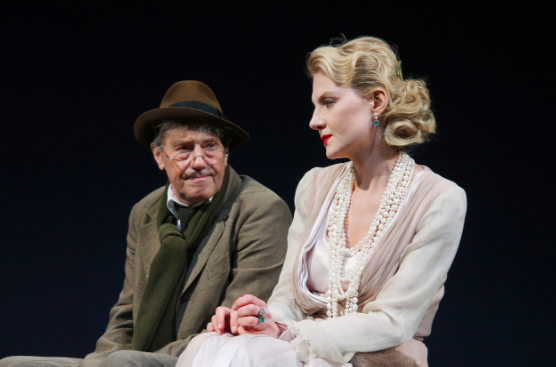
In Chekhov’s symbolic drama, the role of Lyuba encompasses a richly complex woman who continually attempts to run from her troubles in search of a happier life.
Monologue Length: 1:10 – 1:25
“Oh, my sins…. I’ve always scattered money about without holding myself in, like a madwoman, and I married a man who made nothing but debts. My husband died of champagne—he drank terribly—and to my misfortune, I fell in love with another man and went off with him, and just at that time—it was my first punishment, a blow that hit me right on the head—here, in the river… my boy was drowned, and I went away, quite away, never to return, never to see this river again…I shut my eyes and ran without thinking, but he ran after me… without pity, without respect. I bought a villa near Mentone because he fell ill there, and for three years I knew no rest either by day or night; the sick man wore me out, and my soul dried up. And last year, when they had sold the villa to pay my debts, I went away to Paris, and there he robbed me of all I had and threw me over and went off with another woman. I tried to poison myself…. It was so silly, so shameful…. And suddenly I longed to be back in Russia, my own land, with my little girl…. [Wipes her tears] Lord, Lord be merciful to me, forgive me my sins! Punish me no more! [Takes a telegram out of her pocket] I had this to-day from Paris…. He begs my forgiveness, he implores me to return…. [Tears it up] Don’t I hear music? [Listens.]”






